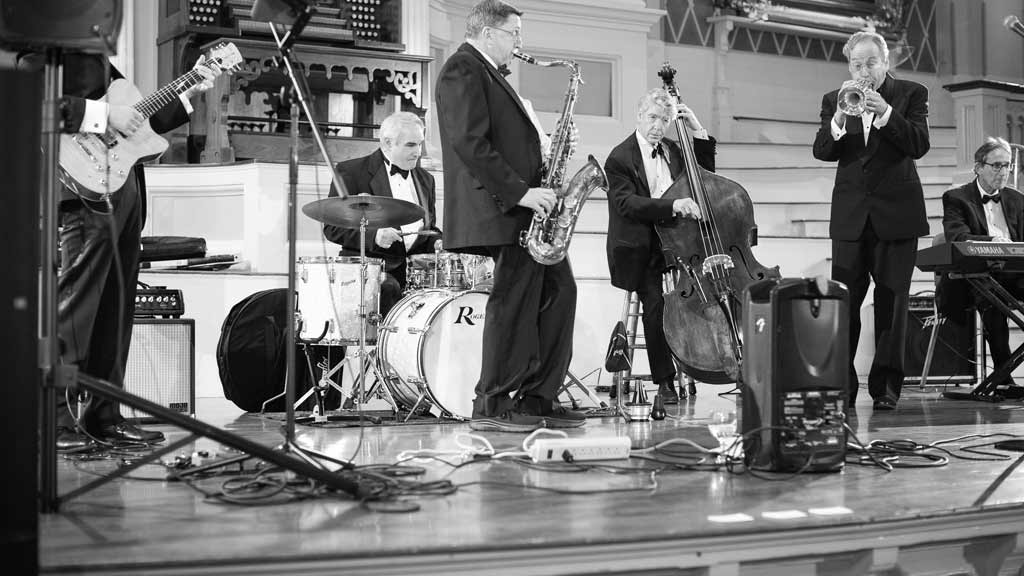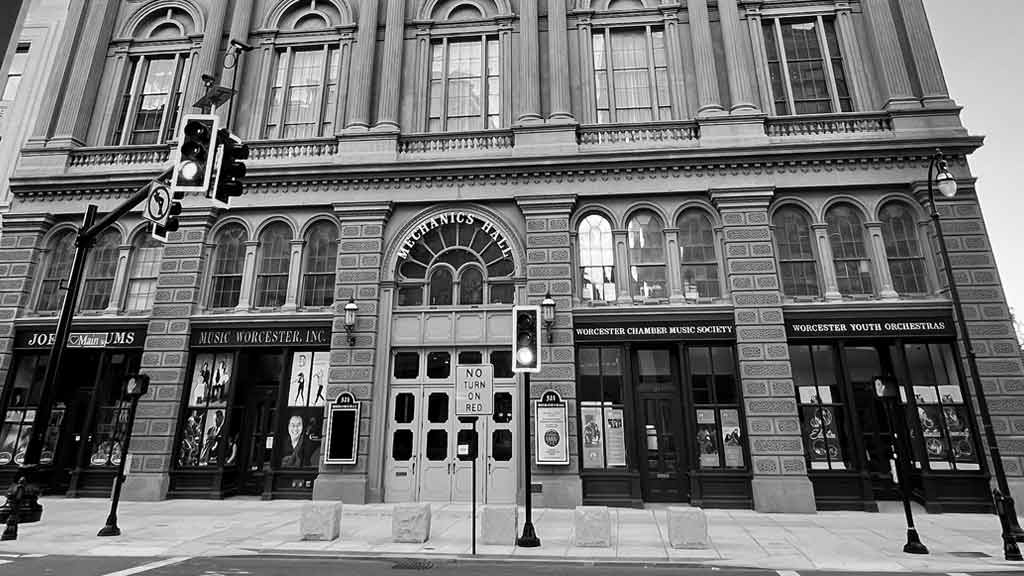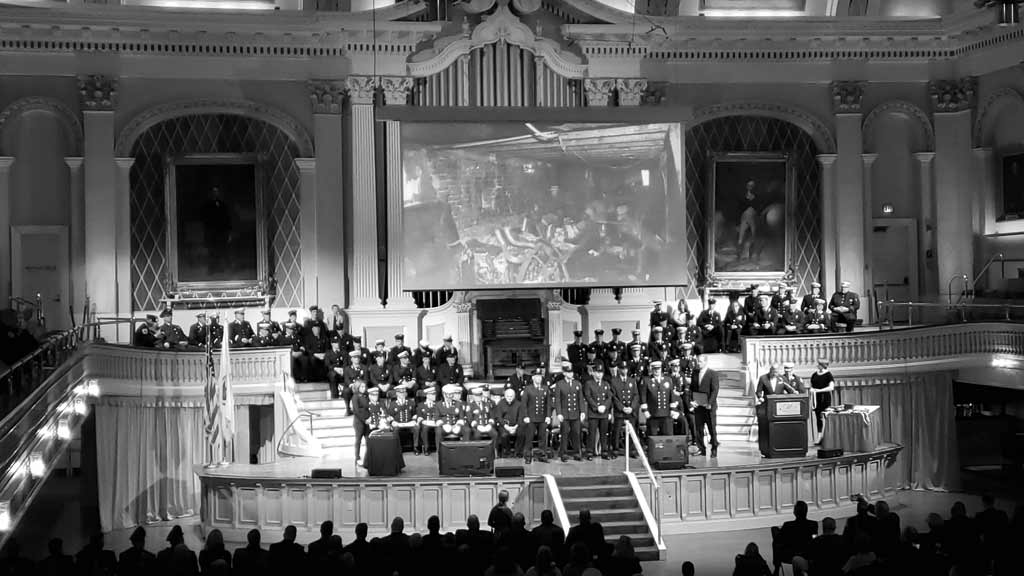Mechanics Hall in Worcester, Massachusetts, stands as a testament to the city’s rich history and cultural heritage.
Founded in 1842 by the Worcester County Mechanics Association, it emerged as a beacon of education, enlightenment, and community engagement.
Designed by architect Elbridge Boyden and completed in 1857, Mechanics Hall quickly became a focal point for intellectual discourse, artistic expression, and social gatherings.
Over the years, it has hosted luminaries from various fields, including literature, music, and social activism, leaving an indelible mark on Worcester’s identity.
Today, Mechanics Hall continues to serve as a cherished landmark, preserving the legacy of Worcester’s industrious past while embracing the promise of its future.
Mechanics Hall Worcester History
Mechanics Hall in Worcester, Massachusetts, encapsulates a compelling narrative of resilience, innovation, and community spirit.
The Worcester County Mechanics Association was conceived as a bastion of education and self-improvement for tradesmen and the local populace.
Burgeoning Industrial Landscape 1842
In 1842, against the backdrop of Worcester’s burgeoning industrial landscape, the Worcester County Mechanics Association is established.
Founded by a group of forward-thinking individuals, including craftsmen, artisans, and entrepreneurs, the Association aims to address the educational needs of the burgeoning community.
In an era where formal education is often a luxury, the Association becomes a beacon of opportunity, offering resources, workshops, and networking opportunities for tradesmen and the local populace.
Late 19th Century

Throughout the late 19th century, Mechanics Hall thrives as a vivid hub of activity. It becomes the preferred venue for a wide array of events, ranging from educational lectures and scientific demonstrations to theatrical performances and musical concerts.
Notable figures, including luminaries like Charles Dickens and advocates for social change like Susan B. Anthony, grace its stage, leaving an indelible mark on Worcester’s cultural landscape.
Culmination of the Worcester County 1857
The culmination of the Worcester County Mechanics Association’s vision manifests in the completion of Mechanics Hall in 1857.
Designed by the esteemed architect Elbridge Boyden, the building stands as a testament to Worcester’s ambition and determination.
Its Renaissance Revival architecture reflects both the elegance of the era and the Association’s commitment to fostering intellectual and cultural enrichment.
With its spacious concert hall renowned for its acoustics, Mechanics Hall quickly becomes a revered institution in the city.
The Threat of Urban Renewal 1970s
The threat of urban renewal looms large over Mechanics Hall in the 1970s, prompting a groundswell of support from the local community.
Recognizing the building’s significance as a cultural and architectural treasure, Worcester residents rally together to raise funds for its preservation and restoration.
The grassroots movement underscores the deep-rooted connection between Mechanics Hall and the people it serves, inspiring a renewed sense of purpose and pride.
Planning and Restoration Work 1977

After years of meticulous planning and restoration work, Mechanics Hall emerges from its renovation in 1977, restored to its former glory.
The revitalized building stands as a symbol of Worcester’s resilience and determination to preserve its heritage amidst rapid urbanization and change.
Its grand reopening sparks a newfound appreciation for the city’s history and cultural heritage, laying the foundation for a bright future.
Mid-20th Century
As the 20th century unfolds, Mechanics Hall faces challenges amid shifting societal dynamics. The decline of downtown Worcester mirrors broader economic changes, leading to a period of neglect for the historic building.
Despite this downturn, Mechanics Hall adapts to the times, embracing new uses such as hosting sporting events like roller skating, while still maintaining its core identity as a bastion of community engagement.
Present
Today, Mechanics Hall continues to stand as a beacon of culture and community in Worcester. Its storied halls echo with the footsteps of generations past, while also welcoming new voices and ideas into its embrace.
As a living testament to Worcester’s industrial legacy and enduring spirit of innovation, Mechanics Hall remains a cherished institution, inspiring and enriching the lives of all who enter its doors.
What Is the Significance of Mechanics Hall in Worcester’s History?
Mechanics Hall stands as a testament to Worcester’s rich history and its pivotal role in the industrial development of the United States.
Established in 1857, Mechanics Hall has been a cornerstone of the city’s cultural, social, and economic landscape for over a century and a half.
Historical Context

During the mid-19th century, Worcester was experiencing rapid industrialization, earning it the moniker “the Heart of the Commonwealth.”
As factories proliferated and industries boomed, there arose a need for spaces that fostered innovation, collaboration, and cultural enrichment.
Mechanics Hall emerged as a response to this demand, serving as a hub for both mechanical innovation and cultural exchange.
Hub of Innovation
Mechanics Hall was initially conceived as a venue for lectures, exhibitions, and discussions on scientific and mechanical advancements.
It provided a platform for engineers, inventors, and entrepreneurs to showcase their creations and exchange ideas.
This emphasis on innovation helped propel Worcester to the forefront of industrial progress, earning it recognition as one of the most dynamic manufacturing centers in the nation.
Cultural Center
In addition to its role in promoting industrial innovation, Mechanics Hall quickly became a cultural focal point for the city.
Its grand architecture, adorned with intricate detailing and elegant design elements, served as a symbol of Worcester’s prosperity and sophistication.
Over the years, Mechanics Hall has hosted a diverse array of cultural events, including concerts, theatrical performances, and art exhibitions, attracting renowned artists and performers from around the world.
Community Engagement
Beyond its architectural and cultural significance, Mechanics Hall holds a special place in the hearts of Worcester residents as a gathering space for community events and celebrations.
From graduations and weddings to fundraisers and civic gatherings, Mechanics Hall has played an integral role in fostering a sense of community pride and cohesion.
Preservation and Legacy
Despite facing challenges over the years, including periods of neglect and the threat of demolition, Mechanics Hall has persevered as a cherished landmark and cultural institution.
Through dedicated preservation efforts and community support, it continues to stand as a living testament to Worcester’s storied past and promising future.
FAQs
Where Is the Mechanics Hall in Worcester?
The Mechanics Hall is located in 321 Main St, Worcester, MA 01608, USA.
When Was Mechanics Hall in Worcester Built?
The Mechanics Hall in Worcester was built in 1855.
How Many Seats Are in Mechanics Hall, Worcester?
Mechanics Hall in Worcester, Massachusetts, boasts a seating capacity of over ten to thirteen thousands making it one of the largest venues in New England.
What Is the Mechanics Hall Dress Code?
Mechanics Hall in Worcester, Massachusetts, does not have a strict dress code, but attendees generally opt for smart casual attire for performances and events.
Wrap Up
Mechanics Hall’s enduring legacy in Worcester’s history is one of resilience, cultural significance, and community cohesion.
From its humble beginnings as a beacon of education and self-improvement for tradesmen to its evolution into a renowned cultural institution, the hall has stood the test of time.
Through periods of prosperity and adversity, it has remained a steadfast symbol of Worcester’s industrial heritage and collective identity.
Jaclyn Lowe